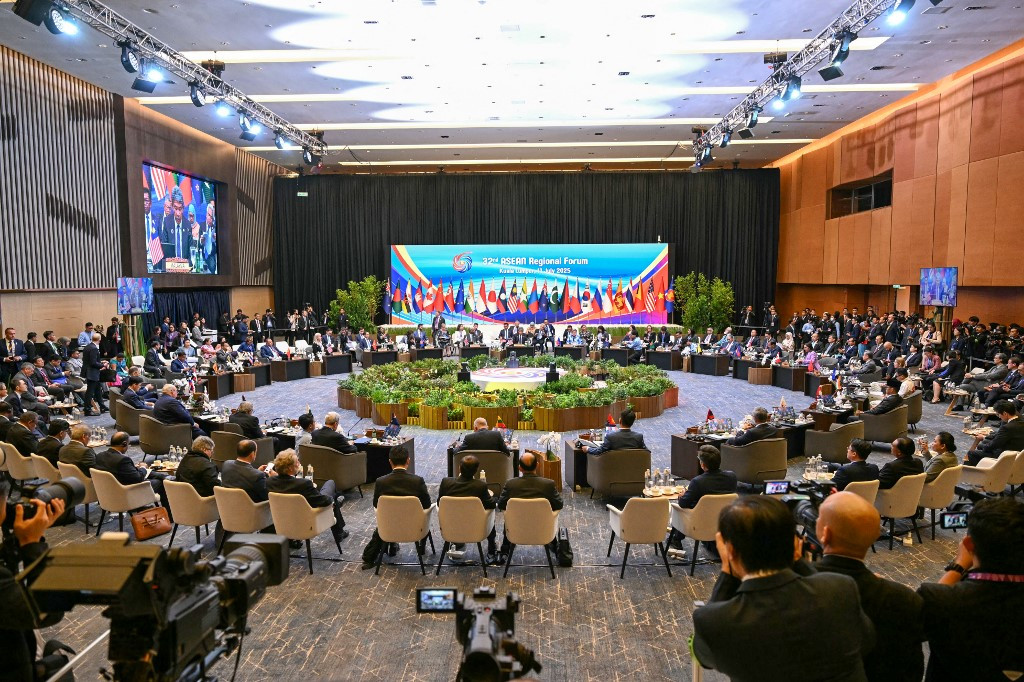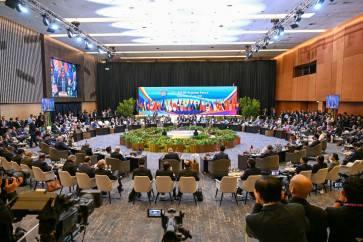Popular Reads
Top Results
Can't find what you're looking for?
View all search resultsPopular Reads
Top Results
Can't find what you're looking for?
View all search resultsFrom tariff talks to conflict resolutions: Negotiators in demand?
Complex issues are often oversimplified for headlines, and the popular focus on making "deals" instead of "agreements" highlights a short-term, transactional mindset.
Change text size
Gift Premium Articles
to Anyone
I
n today's fragmented and divisive world, demands for skilled negotiators, those steeped in diplomacy and dialogue as statecraft, should be at a premium.
After all, a perfect storm is brewing: global politics are becoming increasingly fraught, and common global issues are being weaponized. Open conflicts are flaring up in places like Europe and the Middle East, while other regions, such as East Asia, face renewed risks of unintended conflict due to miscalculations over long-standing disputes.
Even Southeast Asia, long marked by the absence of open conflict between ASEAN member states, was recently reminded of the dangers of complacency and the need to continuously nurture a culture of peace.
Cross-border issues, such as the climate crisis, demand a cooperative global response, yet nations are unable to look past their immediate interests. A proverbial diplomatic traffic jam confronts us as countries scramble to reach “a deal” to stave off tariff wars.
With true statesmanship, these fraught conditions would be an ideal opportunity for diplomats and negotiators to thrive, demonstrating their unique skills in managing international relations, bridging differences and forging consensus tactfully and respectfully.
Unfortunately, the opposite seems to be happening. Diplomacy is facing headwinds as countries increasingly turn inward, seemingly oblivious to the fact that national goals cannot be achieved in a vacuum. Instead, they require a keen awareness of external dynamics and how they affect a country's objectives.
Furthermore, multilateral institutions are facing a critical test of their relevance and credibility. They are often seen as disconnected from shifting power dynamics. Complex issues are often oversimplified for headlines, and the popular focus on making "deals" instead of "agreements" highlights a short-term, transactional mindset.


















